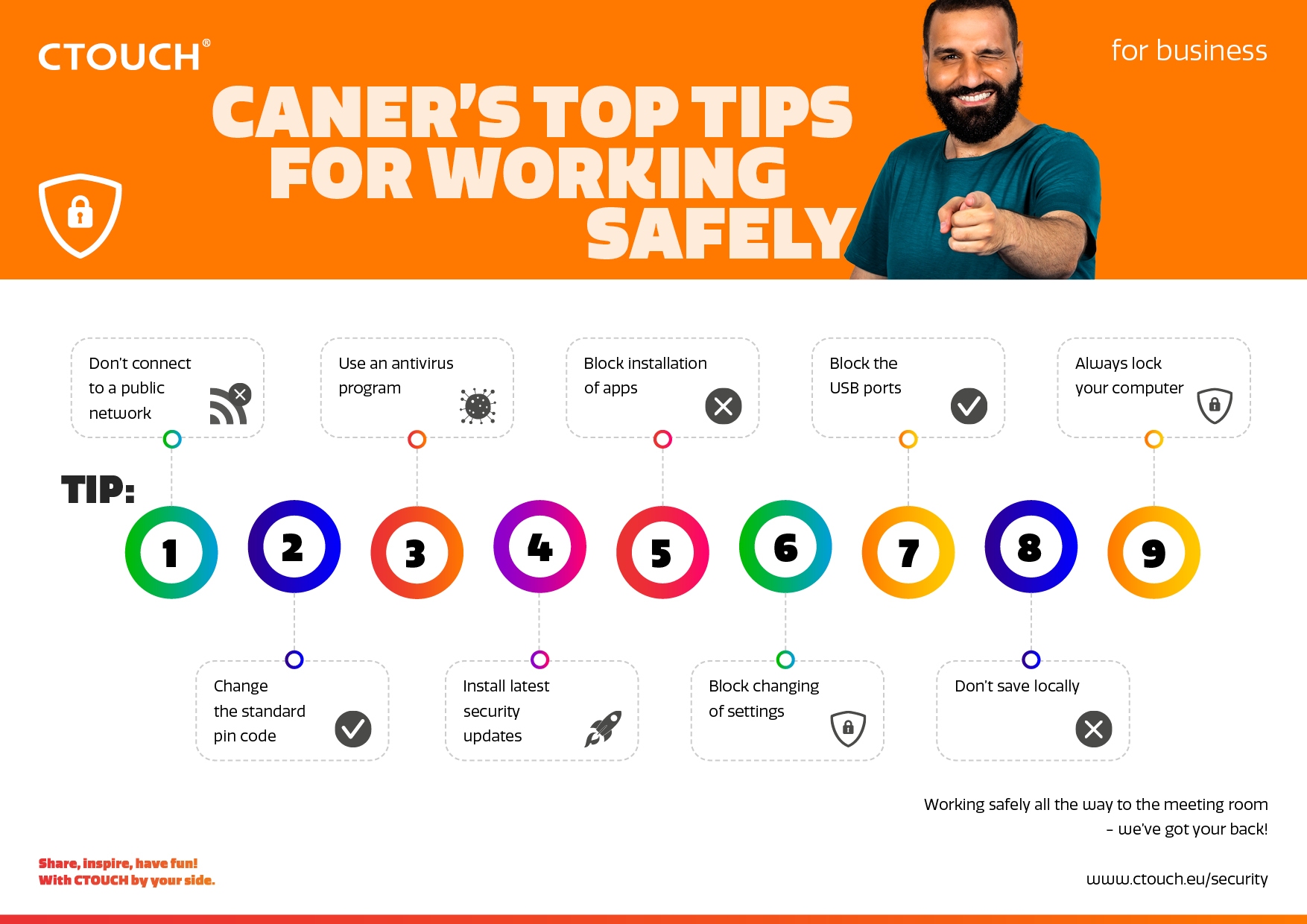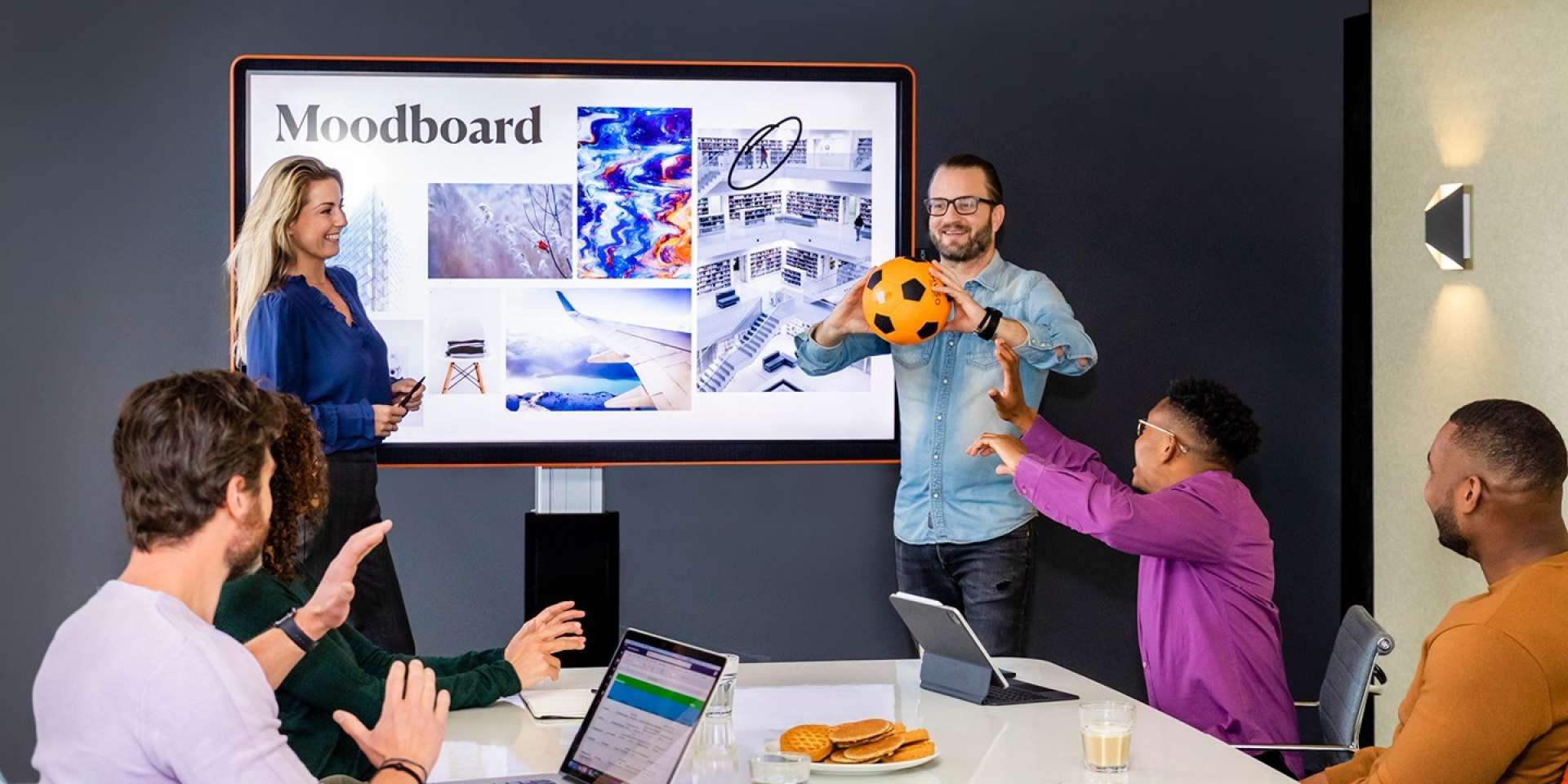Whether you work at a bank, the government or the local bakery, security is a topic for all of us. We are all familiar with terms like DDoS and ransomware, even the less savvy among us, which shows how serious it is. So Caner, one of our security heroes, has shared his top tips. So grab a cup of coffee, put on your seatbelt and let's go!
Tips for every step
Security is not only important during use, but also in the early stages. Therefore, always remember these tips.
Installation:
1. We advise you not to connect the screen to a public or guest network. If you do, it could mean that your data is not safe and that others could be watching with you. After all, the device is only as safe as its weakest link.
2. As soon as the screen is put into use, we advise you to change the default PIN code immediately (and please do not use 0000 😉 ).
Updates and security:
1. Are you using a Windows/Mac connected to the internet? Then use an antivirus program. This makes the computer extra secure against external attacks.
2. To ensure that the screen and/or computer is always optimally protected, you can indicate that the latest security updates should be installed automatically. This also guarantees that you can use all new features.
To always be informed when an update is available, subscribe to our newsletter.
3. Consider blocking users from installing applications themselves. After all, how often do passwords get stolen? Therefore, set certain requirements for how the password should be composed and a period when it expires. In this way, you avoid passwords that are easy to guess ('C4n3R_is_Gr3aT!' is of course a lot safer than 'password').
4. Block the changing of settings by means of a PIN code, so that you will not be confronted with unpleasant surprises.
Usage:
1. USB sticks are extremely handy for quickly copying something from one computer to another. However, this also creates additional risks. For example, it is easy to transfer an infected file to another computer. Therefore, for extra safety, it is advisable to block the USB ports.
2. If the screen and/or computer is used by several people, we recommend not storing anything locally. This prevents the wrong people from accessing your data.
3. If you have to leave the room for a while, make sure that you do not leave your things unattended. If you do, we advise you to lock your computer. This ensures that other people cannot access your data.

Last but not least
The above tips are only the most important, and they are exactly that: tips. Above all, look critically at your own organisation: what happens every day, where are the risks and who are the users? Talk to the stakeholders and determine the strategy that works best for you. And do you need help with that? Caner (or one of our other colleagues) is ready to help you 😊
